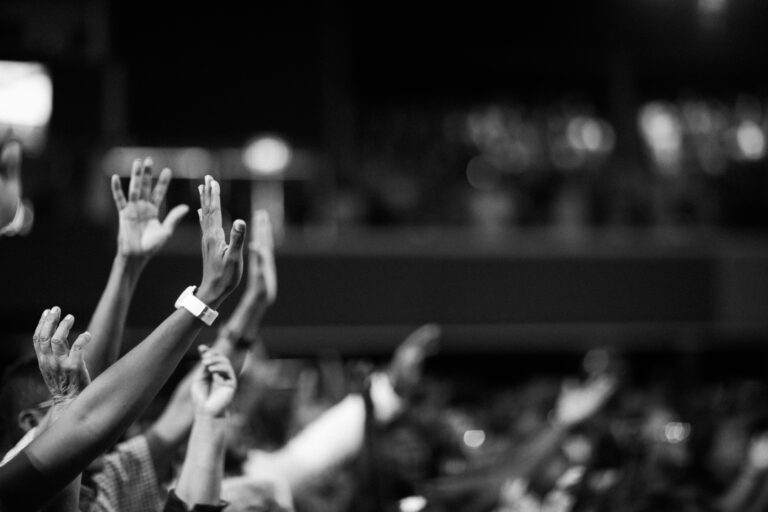As the countdown to Eurovision 2025 begins, excitement is brewing across Europe—and beyond. The Eurovision Song Contest, a spectacle of music, culture, and creativity, stands as one of the world’s most beloved and enduring entertainment events. With fans from over 50 countries preparing to tune in, the stage is once again set for a dazzling display of musical artistry and international camaraderie.
If you’re new to Eurovision or just brushing up before the next edition, this guide will walk you through the contest’s rich history, what makes it so unique, and what you can expect from the 2025 competition.
What is Eurovision?
The Eurovision Song Contest is an annual international music competition organized by the European Broadcasting Union (EBU). The first contest was held in 1956 in Lugano, Switzerland, with only seven countries participating. Fast forward nearly seven decades, and Eurovision has grown into a global event, boasting over 40 participating nations and a staggering 180 million viewers annually.
Despite the name, Eurovision is not limited to countries within the European Union or even the European continent. Countries like Australia, Israel, and Azerbaijan have long been part of the competition, highlighting its commitment to cultural exchange beyond borders.
The Format: How Does It Work?
Eurovision is more than a typical talent show—it’s a multi-stage event that unfolds over several days:
- Semi-Finals: Countries (except the host and “Big Five”) must compete in one of two semi-finals to earn a spot in the grand final.
- Grand Final: The grand final typically features around 26 acts—those who qualified from the semis plus automatic entries.
- Voting System: Winners are determined through a mix of jury votes (from each participating nation) and public televotes, often resulting in dramatic point swings.
Key Features That Define Eurovision
1. Diverse Performances
Every country submits an original song performed live. From ballads and operatic pieces to electronic dance tracks and political anthems, there’s no limit to genre or style. This diversity makes Eurovision unpredictable and often unforgettable.
2. Cultural Celebration
Eurovision acts often integrate national languages, folklore, fashion, and instruments into their performances. This cultural pride is at the heart of the contest’s appeal, allowing smaller nations to showcase their identity on a global stage.
3. Visual Spectacle
Eurovision is famous for its extravagant staging—think fire cannons, LED floors, aerial stunts, and avant-garde costumes. Even minimalist acts are meticulously crafted to make an emotional impact.
4. Global Fanbase
Though it began as a European tradition, Eurovision now commands a global fan community. Live parties are hosted in cities from Berlin to Buenos Aires, and memes from the contest often trend worldwide on social media.
5. The Unexpected
Eurovision thrives on the unexpected: from surprise winners to bizarre performances (looking at you, dancing gorillas and bearded divas), part of its charm is never knowing what might happen next.
A Launchpad for Stars
Over the decades, Eurovision has served as a career-launching platform for numerous artists:
- ABBA (Sweden, 1974) – The Swedish quartet became international superstars after winning with “Waterloo.”
- Celine Dion (Switzerland, 1988) – Before becoming a global icon, Dion won the contest for Switzerland.
- Måneskin (Italy, 2021) – The Italian rock band exploded in popularity after their energetic performance of “Zitti e buoni.”
Beyond pop success, Eurovision artists have gone on to achieve cultural and political significance, using their platforms to advocate for LGBTQ+ rights, climate awareness, and political reform.
Eurovision 2025: What’s Coming
While full details are still emerging, here’s what fans can already anticipate:
1. Host City
Traditionally, the winning country of the previous year hosts the next edition. That country’s national broadcaster selects a host city, often a capital or major cultural hub, capable of managing thousands of guests and international media.
We can expect a venue with:
- A large indoor arena (10,000+ capacity)
- Modern technical capabilities
- Robust public transportation
- Accommodations for press, delegations, and fans
2. Participants
More than 40 countries are likely to compete. Expect returning fan favorites like Sweden, Italy, and Ukraine, as well as entries from smaller or less mainstream countries like San Marino, Georgia, and Moldova, who often surprise with bold and memorable acts.
3. New Rule Changes
The EBU periodically updates the rules to reflect technological changes and fan feedback. For 2025, rumors suggest:
- Greater emphasis on live vocals
- Expanded voting access for global audiences
- Possible tweaks to automatic finalist privileges
These changes aim to keep the contest fair, relevant, and competitive.
4. Technological Innovation
Every year, Eurovision raises the bar for stage design and broadcast quality. Expect:
- Augmented reality (AR) elements
- 360° camera shots
- Drones and motion tracking
- Interactive voting systems
Eurovision’s Social Impact
Eurovision is more than music—it’s a mirror reflecting the sociopolitical climate of its time. Over the years, the contest has:
- Supported LGBTQ+ visibility (Conchita Wurst’s 2014 win was a cultural milestone)
- Addressed climate change, war, and human rights
- Provided a stage for resistance (songs from Ukraine, Belarus, and Armenia have tackled serious political themes)
This makes Eurovision not only a celebration but a platform for soft power, storytelling, and global dialogue.
How to Join the Fun in 2025
If you’re planning to follow Eurovision 2025, here’s how to get involved:
- Watch Live: The shows (two semi-finals and a final) are broadcast on national TV and streamed online via YouTube and Eurovision.tv.
- Join Fan Communities: Online forums, Facebook groups, Reddit threads, and Discord servers are great places to discuss predictions and favorite acts.
- Attend in Person: Tickets typically go on sale months in advance. Hotels in the host city fill up quickly, so book early!
- Download the App: The official Eurovision app lets you vote (where eligible), stream rehearsals, and access exclusive content.
Looking Ahead
With its unique combination of drama, artistry, and cultural diplomacy, Eurovision 2025 is poised to be another unforgettable chapter in the contest’s storied history. Whether you’re watching for the wild costumes, the ballads that give you goosebumps, or the joy of discovering new music, there’s a place for everyone under Eurovision’s glittering spotlight.
What Lies Ahead and Why It Matters
As Eurovision 2025 draws closer, the anticipation continues to mount. For many, it’s more than just a music competition—it’s a global event that blends artistry, politics, passion, and spectacle into a week-long celebration of culture and unity. In this second part, we’ll look ahead at what to expect in the 2025 edition, highlight key storylines and returning nations to watch, explore the evolving role of politics and activism within the contest, and explain why Eurovision remains as relevant and revolutionary as ever.
Countries to Watch in 2025
Each Eurovision brings a new mix of musical styles, emerging stars, and national ambitions. For the 2025 edition, several countries are already stirring interest based on recent performances, growing fan bases, or intriguing national selections.
Sweden
As one of Eurovision’s most successful countries, Sweden consistently delivers polished, radio-friendly entries. After hosting in 2024, expectations are high once again. Will they bring another slick pop act—or take a creative risk?
Ukraine
Always known for bold staging and emotionally powerful songs, Ukraine continues to be a fan favorite. Their entries often blend modern production with deep cultural symbolism. In a post-conflict era, their performance may carry profound political resonance.
Italy
Italy’s reputation for musical artistry remains strong. With the Sanremo Music Festival serving as their selection method, Italy often sends unique, genre-blending acts with powerful vocals and poetic lyrics. Their return to rock and indie styles has found broad European appeal.
France
France has stepped up its Eurovision game in recent years, embracing more modern and culturally relevant entries. Will they continue this trajectory with a bold new act or return to more classic chanson stylings?
Australia
Though not a European country, Australia has proven its Eurovision credentials with strong vocals, innovative staging, and passionate fans. Their continued participation reminds audiences that the contest’s appeal is truly global.
Newcomers and Returning Nations?
There’s always speculation about potential new countries joining or former participants returning. For Eurovision 2025, whispers surround:
- Luxembourg, who returned triumphantly in 2024 after a long absence—will they invest more in 2025?
- Turkey, whose absence since 2012 has been sorely felt by fans—rumors persist about a potential comeback.
- North Macedonia and Bulgaria, both of whom have withdrawn and re-entered in recent years due to financial or political reasons, may return to the fold.
The inclusion or exclusion of countries often reflects deeper geopolitical or economic issues, adding another layer of intrigue to the contest.
Themes That Could Shape Eurovision 2025
Eurovision has never been “just” about songs. Behind the glitter and glamour lie powerful stories, pressing global themes, and a unique reflection of Europe’s social and political mood.
1. Political Undercurrents
While Eurovision officially bans overtly political lyrics or messaging, politics inevitably seep into the narrative. From flag controversies to voting patterns and symbolic lyrics, the contest often mirrors real-world tensions.
With ongoing global conflicts, migration challenges, and climate concerns, artists may opt for metaphorical storytelling to convey deeper messages. Entries from countries like Armenia, Georgia, or Ukraine have used poetic and emotional performances to highlight national resilience.
2. Diversity and Inclusion
Eurovision has long been a safe haven for the LGBTQ+ community and a platform for challenging norms. Expect acts in 2025 to continue breaking boundaries in terms of gender expression, sexuality, and cultural representation.
From drag performers to artists with disabilities and multilingual lyrics, Eurovision is increasingly embracing broader definitions of identity and inclusion.
3. Technology and Storytelling
Advancements in technology are transforming how stories are told on the Eurovision stage. Expect to see:
- AI-generated visuals
- Augmented reality elements
- Real-time audience interaction
- Immersive lighting and projection effects
Artists are no longer just singers—they’re visual storytellers, and 2025 will push the envelope even further.
Eurovision and Social Media: A New Era of Fan Power
Social media has revolutionized how fans interact with Eurovision. Platforms like TikTok, Instagram, and Twitter amplify everything—from early rehearsal leaks to meme-worthy onstage moments.
Fan engagement will be especially intense in 2025. Look out for:
- Live reactions and watch parties
- Fan rankings and predictions
- Behind-the-scenes content from delegations
- Influencer and content creator partnerships with broadcasters
This digital ecosystem turns casual viewers into active participants and shapes how entries are perceived even before the final.
The Voting Drama: Still the Most Thrilling Moment in TV?
One of the hallmarks of Eurovision is its unique voting system. With every country awarding two sets of points—one from a professional jury, one from public televoting—the scoreboard can change dramatically in the final minutes.
Recent years have brought added suspense by announcing jury and public votes separately. This has produced some of the most intense moments in live television, as frontrunners suddenly plummet or underdogs soar at the very last second.
In 2025, expect even more transparency and breakdowns in how votes are counted and visualized—possibly through interactive graphics or real-time data updates.
The Future of Eurovision: Why It Still Matters
As the world becomes increasingly fragmented, Eurovision offers a rare space where nations come together, not in competition for dominance, but in celebration of art, identity, and shared humanity.
Cultural Diplomacy
Eurovision is arguably Europe’s most successful cultural diplomacy project. It provides small nations a global spotlight, allows audiences to experience cultures they might never encounter otherwise, and fosters connection through song.
Resilience Through Art
In times of crisis—whether political, social, or personal—Eurovision has repeatedly shown its ability to uplift and unite. In 2020, even when the live contest was canceled due to COVID-19, artists came together virtually to keep the spirit alive.
Inspiration for Young Artists
Eurovision has become a dream stage for up-and-coming artists. Its influence now stretches into fashion, design, digital art, and activism. As boundaries between disciplines blur, the contest is no longer just about music—it’s about multimedia storytelling.
Final Thoughts: Get Ready for the Magic of 2025
As Eurovision 2025 approaches, one thing is certain: this will be no ordinary year. With new voices, powerful themes, technological marvels, and a loyal global fanbase, the contest is poised to reach new heights.
Whether you’re cheering from your living room, traveling to the host city to experience the magic firsthand, or tuning in from a distant corner of the world, Eurovision invites you to be part of something larger than yourself.
It’s a celebration of difference, a showcase of unity, and a reminder that in a world full of division, we can still come together—to sing, to dance, and to dream.
So mark your calendars. Charge your phones. Choose your flags. The world’s most unique music celebration is coming—and Eurovision 2025 promises to be bolder, brighter, and more breathtaking than ever.
Let the countdown continue.













